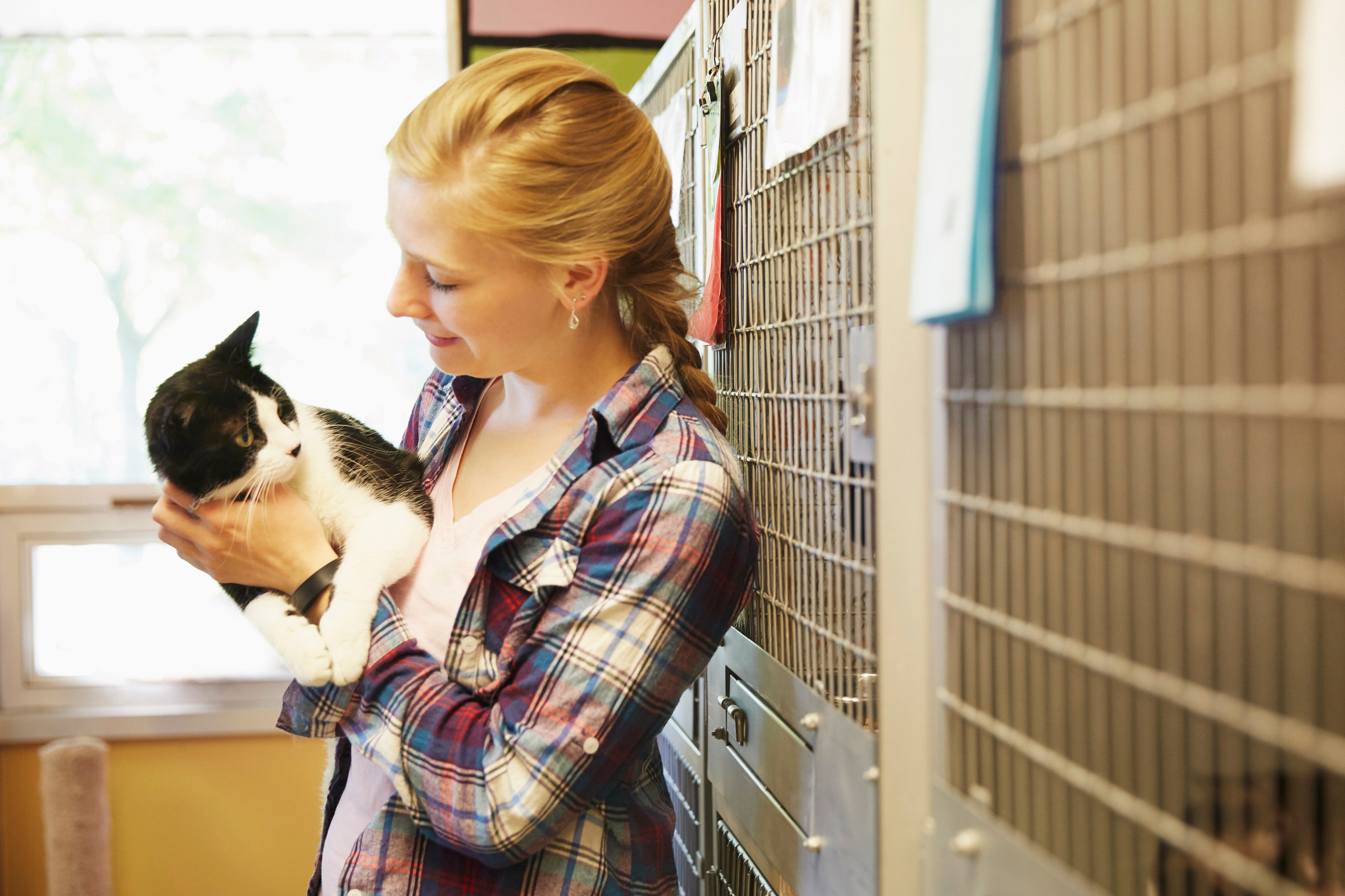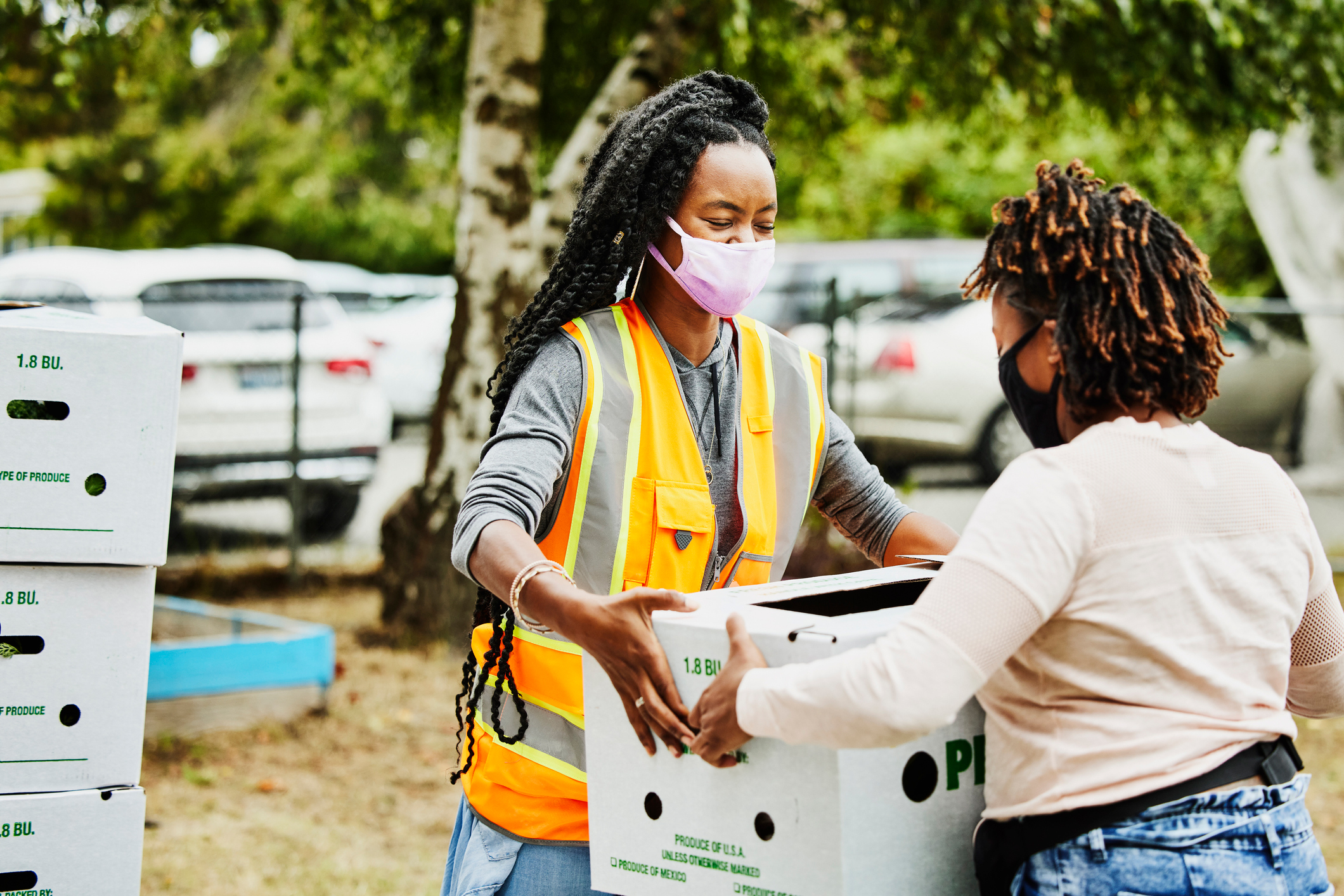This time of year often serves as a reminder to count your blessings and think of those who are less fortunate and the organizations trying to make a difference. So set aside your holiday wish list — now is the time to think of others. As Martin Luther King, Jr. said: “Life’s most persistent and urgent question is, What are you doing for others?” Let’s get that question answered.
Where to volunteer
The reasons for volunteering are pretty obvious — you offer your service, time and expertise to help a worthwhile cause, and in return, you feel good. “There’s significant research demonstrating that volunteering makes us happier and more grateful for our own lives,” says Brad Aronson, author of national bestseller HumanKind: Changing the World One Small Act at a Time. That’s the why. The where can be a bigger question.
What’s a good place to start? “Figure out what you’re passionate about,” says Aronson. If you love animals, the animal shelter is a no brainer; if you love books, see if your library needs helpers; have a green thumb? Look into community gardens or gardening initiatives at schools or retirement homes. Are you a great salesperson with a knack for styling outfits? You could be amazing in a charity shop. Check out VolunteerMatch.org or Aronson’s list for opportunities, which could include helping out at college football games, making Christmas craft packs for homeless children or helping foreign students learn English — those are just a few examples of current listings. There are virtual opportunities that you can do from home, as well.

You can always do a web search for volunteer opportunities in your area or go directly to organizations you think could be a fit. Also, ask around — people often know of organizations or even individuals looking for help. Consider what you want out of the position as well. Is it personal fulfillment? Hours you need to fulfill for something, like school credit? Maybe it’s to learn something new. (What really happens in a firehouse — yep, fire stations often recruit volunteers!)
“Churches, synagogues, mosques and other religious organizations usually have lists of local places to volunteer. Hospitals, senior homes, animal shelters and food pantries also regularly need volunteers. And you can also check with your local schools,” explains Aronson. It doesn’t even need to be through an organization. “Almost all of us know someone going through a rough time. We can reach out to that person with a note of support, a meal or with a helping hand.”
Things to consider
Once you find a volunteer position that sounds appealing, ask questions: What would your duties be? What is the time commitment? What are the rules for volunteering and do you meet those criteria? What references do they need to hire you? If you need proof of volunteering, can they provide that at the end of your tenure? Get it all in writing so there’s no confusion on either side as to what the expectations are with this position.
“As you grow older, you will discover that you have two hands — one for helping yourself, the other for helping others.” — Audrey Hepburn
Then think about your time. “Figure out how much time you can and want to volunteer and then find an opportunity that fits,” explains Aronson, adding that there are short-term, one-off opportunities, like “writing an encouraging letter to a lonely senior, veteran or hospitalized child” or more long-term options, “Like becoming a mentor through Big Brothers, Big Sisters, where the organization hopes you’ll be engaged regularly with your mentee for at least a year.” But he also advises to start small: “To succeed you need to make sure you enjoy the work and that you have enough time for the commitment you’re making.” If you aren’t good at sticking with things, don’t start in the first place. “It takes time and resources for stretched nonprofits to manage volunteers, so it’s important to live up to your volunteer commitments.” Maybe consider buddying up with a friend or family member to hold each other accountable (and share in the experience together).

Volunteering in the COVID era
“Volunteering is needed more than ever. Covid has created significant stress on people and the organizations that serve them,” says Aronson. For starters, “Don’t be discouraged if you don’t get a response right away. Nonprofits are understaffed, especially these days, and can’t always get back to you.” Have patience dealing with changing protocols within organizations.
And remember that volunteering can be done at a distance. Help write grants, develop a website or handle social media posts, be a foster home for an animal to get it used to people, be a virtual tutor, sew for hospice patients. The list goes on and on — you see, you are needed, no matter what you have to offer. “People often underestimate what’s needed to volunteer,” says Aronson. “You need a heart and a willingness to give some of your time.”
We only recommend products we have independently researched, tested, and loved. If you purchase a product found through our links, Sunday Edit may earn an affiliate commission.







